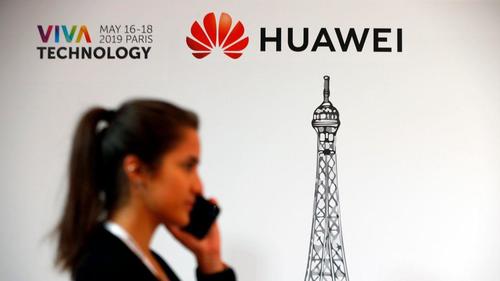Huawei Caught Red-Handed In Covert Influence Op To Sway European Policymakers On 5G
Huawei was recently busted in Europe for waging an aggressive online social media campaign which utilized a small army of fake accounts in order to sway European officials over telecommunications policy.
In particular the "covert pro-Huawei influence campaign" sought to convince Belgium lawmaker's to see it China's way at a moment the United States is targeting its building 5G networks in the West.
The New York Times details that in one documented instance, a now former contract employee wrote a pro-Huawei article arguing that the company shouldn't be punished based on new draft legislation being considered in Belgium. It then went viral based on a clearly coordinated initiative that went far beyond usual corporate PR and propaganda.

The author of the Dutch-language article was later surprised to see the article take off and circulate among many "experts" he had never heard of:
First, at least 14 Twitter accounts posing as telecommunications experts, writers and academics shared articles by Vermulst and many others attacking draft Belgium legislation that would limit "high risk" vendors like Huawei from building the country’s 5G system, according to Graphika, a research firm that studies misinformation and fake social media accounts. The pro-Huawei accounts used computer-generated profile pictures, a telltale sign of inauthentic activity.
From there, it went from being shared among the fake accounts, apparently including Twitter bots, to real accounts among top level Huawei executives in what the NYT report admits was a pretty rudimentary scheme:
Next, Huawei officials retweeted the fake accounts, giving the articles even wider reach to policymakers, journalists and business leaders. Kevin Liu, Huawei’s president for public affairs and communications in Western Europe, who has a verified Twitter account with 1.1 million followers, shared 60 posts from the fake accounts over three weeks in December, according to Graphika. Huawei’s official account in Europe, with more than 5 million followers, did so 47 times.
But interestingly and tellingly the Times report stops far short of alleging Chinese state sponsorship to the information op, despite the long record of state support fueling the telecommunications giant's global rise.
The pattern has been that Russian state "influence ops" are often alleged or assumed on much lesser grounds and evidence, but Chinese interference in Western democracies?
A web of fake Twitter accounts posted pro-Huawei content in a bid to influence European policymakers over access to 5G networks. The covert campaign, amplified by company executives, suggests a new twist in social media manipulation. https://t.co/XvHyFDdZZS
— NYT Business (@nytimesbusiness) January 30, 2021
Here's the Times appearing to brush aside the question, instead of digging deeper:
The effort suggests a new twist in social media manipulation, said Ben Nimmo, a Graphika investigator who helped identify the pro-Huawei campaign. Tactics once used mainly for government objectives — like Russia’s interference in the 2016 U.S. presidential election — are being adapted to achieve corporate goals.
"It’s business rather than politics," Nimmo said. "It’s not one country targeting another country. It looks like an operation to promote a major multinational’s interests — and to do it against a European state."
Well, yes and no. Nothing further? Nothing to see here...
A network of Twitter bots has attacked the Belgian government's Huawei 5G ban https://t.co/lKySzPP8Eb
— ZDNet (@ZDNet) January 30, 2021
In a follow-up statement Huawei all but admitted to the "inappropriate" covert social media influence campaign. "Huawei has clear social media policies based on international best practice, and we take any suggestion that they have not been followed very seriously," the company statement said. "Some social media and online activity has been brought to our attention suggesting we may have fallen short of these policies and of our wider Huawei values of openness, honesty and transparency."
How is it actually known that as the Times quoted, "It's not one country targeting another country..."? By all appearances it seems precisely this, given Beijing and Huawei's well-documented track record.
https://ift.tt/36vcY1Q
from ZeroHedge News https://ift.tt/36vcY1Q
via IFTTT




0 comments
Post a Comment